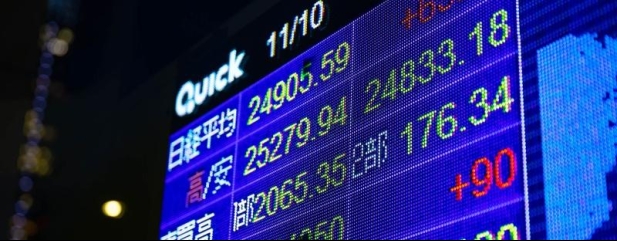Archived article
Please note that tax, investment, pension and ISA rules can change and the information and any views contained in this article may now be inaccurate.
Japan’s Nikkei 225 hits all-time high, but what is the next move for investors?

The Japanese benchmark index breached its 1989 all-time high of 38,915.87 on 22 February 2024.
So, what is fueling Japan’s Nikkei 225 which rallied 28% last year and is this rally a sign for investors to ‘pile in’ or maintain a ‘safe distance’?
A combination of factors has driven the surge in Japanese equities and the benchmark, including reforms by former prime minister Shinzo Abe during his second term focusing on corporate governance and shareholder returns.
The Bank of Japan’s commitment to an ultra-loose monetary policy and the Nikkei 225’s weightings towards information technology (26%), industrials (17%) and key themes like artificial intelligence (AI) have also contributed.
The Nikkei has a low weighting toward financials (3%), which have struggled over the past year in most major markets, and there is also a sense Japanese companies have benefited from US sanctions imposed on China.
James Salter, chief investment officer and manager of the Zennor Japan fund (BKPVTJ9) says: ‘In 2024, Japan looks frighteningly normal from a stock market perspective with much-improved corporate governance and world-beating niche manufacturing businesses, particularly in technology and robotics. The death of zaitech (a form of financial engineering) and poor disclosure at company meetings are all distant memories.’
Salter adds there are ‘rich pickings to be found in mid and small-cap shares; true specialists in this market will have opportunities to add significant alpha. And, as interest rates rise, the yen will strengthen, enhancing returns for UK investors.’
However, in sterling terms, the Nikkei is trading below the peak it set three years ago because the Japanese currency has slumped by nearly a quarter over that period, flags AJ Bell investment director Russ Mould.
The Bank of Japan has stuck with negative interest rates since 2016 and continued to run a qualitative and quantitative easing (QQE) bond-buying scheme although it is expected to move towards its first interest rate hike since February 2007 now that inflation has exceeded the central bank’s official 2% target.
That means investors looking to invest in Japan in the future will need to take into consideration any change in the Bank of Japan’s monetary stance and the weak Japanese yen.
DISCLAIMER: Financial services company AJ Bell referenced in this article owns Shares magazine. The author of this article (Sabuhi Gard) and the editor (Ian Conway) own shares in AJ Bell.
Important information:
These articles are provided by Shares magazine which is published by AJ Bell Media, a part of AJ Bell. Shares is not written by AJ Bell.
Shares is provided for your general information and use and is not a personal recommendation to invest. It is not intended to be relied upon by you in making or not making any investment decisions. The investments referred to in these articles will not be suitable for all investors. If in doubt please seek appropriate independent financial advice.
Investors acting on the information in these articles do so at their own risk and AJ Bell Media and its staff do not accept liability for losses suffered by investors as a result of their investment decisions.
Issue contents
Daniel Coatsworth
Editor's View
Feature
- How Latin American emerging markets compare
- Emerging markets: China positive policy moves, US rates shift and what’s happening in Latin America
- Find out what Terry Smith thinks about obesity drugs and AI
- How intangibles can be used to identify great businesses
- Champions of Europe: how to invest in the continent’s best stocks
- Merger activity in the property sector heats up with bid battle for API
- Why is Diversified Energy launching a tender offer and what are investors’ options?
Great Ideas
News
- Seraphim reaches for the stars with 31% year-to-date gains
- Brakes slammed on Mobico recovery as results delay frustrates investors
- Competition authority finds ‘fundamental concerns’ in the UK housebuilding market
- Berkshire cash hits record $168 billion as deals dry up
- Japan’s Nikkei 225 hits all-time high, but what is the next move for investors?
 magazine
magazine








